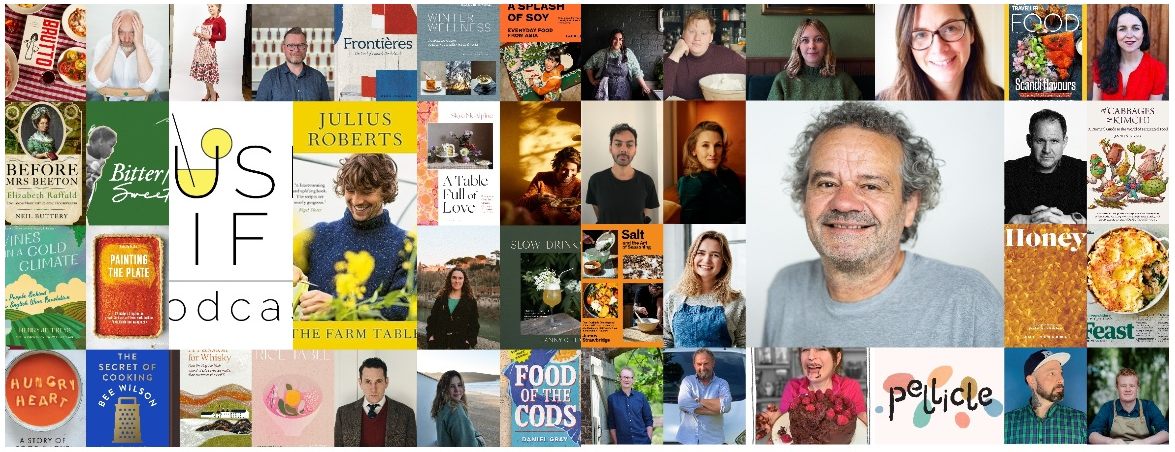Navigating the Minefield of Recipe Appropriation
It is 2021, and many years since food writers first started to be accused of appropriation – taking recipes from different cultures, and adapting them for their own purposes (sometimes beyond recognition) and profit.
This is an emotive and complicated subject, but the line between celebrating a dish with special heritage and roots, and stealing it, is not as fine as you might think. It is largely a question of thoughtfulness and sensitivity.
The Guild of Food Writers takes pride in its cultural diversity, and the following guidelines are intended as a starting point, to help writers – particularly recipe writers – ensure that they do not inadvertently, or carelessly, cause offence. They are loosely based on an illuminating and highly popular workshop by Mallika Basu, presented to Guild members. It is not comprehensive, and things change: so if you have ideas for improving this page, please contact Sumayya Usmani, who oversees diversity on behalf of the Guild committee.
- When writing or adapting recipes from other parts of the world, bear in mind that these dishes mean something important to the people who created them, and have often been handed down many generations. Show respect and gratitude – never be dismissive.
- If you are working from a direct or indirect source, always credit it. (How would you feel if a treasured recipe from your family or community turned up under someone else’s byline?)
- If you are describing a recipe as authentic, make sure it is directly attributable to a traditional method or expert author. ‘Based on’ is something different. ‘Inspired by’ gives you more leeway. Whichever it is, be sure of your facts and be honest.
- Do your research when working with recipes from another culture or recipe. A quick internet search or meal overseas do not make you an expert. (It may, however, make you look ignorant, as well as arrogant.)
- If you need information, ask someone who knows. Guild members are uniquely placed to tap into the expertise of others, via the Facebook Forum or newsletter, or by searching the website for authors with a particular speciality. Don’t be shy of asking for help.
- It is common nowadays to combine influences from different cuisines and cultures, based on your own heritage and upbringing. If you take this path, make sure you understand exactly what you’re doing, explain it to your readers and tell them why.
- We all make mistakes. If you trip up and cause offence, a genuine (and immediate) apology can often save the day.
Preferred style
Most publications or publishing houses have their own style guides. Here, however, is a selection of things every food writers should be aware of, and watch out for.
We are keen to expand this list with more examples and illustrations. If you have suggestions, please contact Sumayya, as above, if you have ideas for inclusion.
Generalisations and stereotypes
For example, Asia consists of 49 countries (depending on how you count them) and covers 30% of the world’s land surface. Describing something as ‘Asian’ is probably an absurd generalisation, like calling one ‘European’.
‘Othering’
Words like ‘exotic’ are usually a lazy way to say ‘non-British’. ‘Oriental’ should be avoided.
Spellings
If you are using words from other languages, often transliterated, some communities have a preference for spelling: do your research. If using geographical names, ensure they are correctly spelt (‘Peshawari’, not ‘Peshwari’).
Terminology
For example, ‘Kaffir lime leaves’ should be avoided. Use ‘lime leaves’ or ‘dried lime leaves’. (Proper name: ‘makrut lime leaves’.) If you find other such words, please let us know.
Attributions
Spanish, Spanish-style – or neither? If you are writing a recipe which uses (for instance) Spanish ingredients, but is not an authentic Spanish dish, it is preferable to lead with the ingredients, rather than sloppily attribute your effort to a nation, culture or community.
The Guild would like to thank Mallika Basu for her invaluable input on these recommendations. Mallika presents a range of workshops and programmes for individuals and companies, including her much-lauded ‘Culture and Mindsets’ presentation. If you would like to know more, she can be contacted via email at mallika@basuconsulting.co.uk or on Twitter/Instagram @MallikaBasu_.
A Note on Americanisation
It is far from straightforward translating recipes for the American market. The best work of reference is Delora Jones’s American Cooking in England, though this requires a major outlay.
Among the Guild’s membership are many experts in this field, so if you require specific advice, or need to tackle a whole project, we recommend putting an appeal in the Guild newsletter or on the Facebook Forum.


